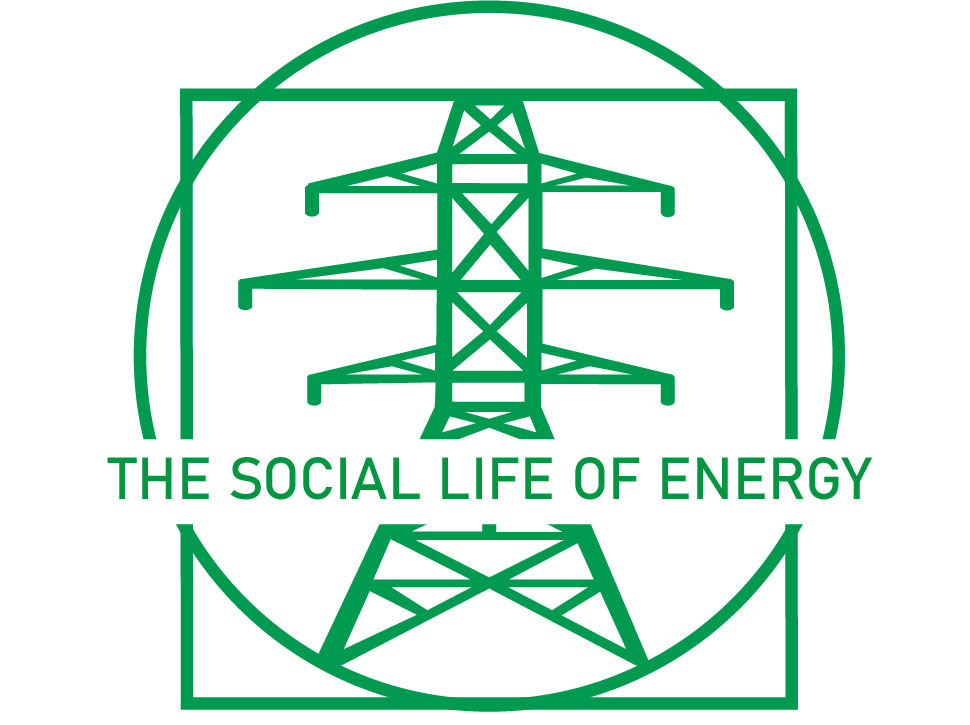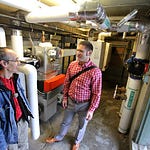Dear folks,
In the fall of 2019 (which seems disturbingly close; what happened to 2020?), I wrote about the importance of understanding people in context. Energy practices and energy values are developed in our relation to the things and people around us. Today’s podcast returns to this topic with what actually happened in 2020: SARS-CoV-2. Below you’ll find a small bullet-point summary of the main points, but before that I’d like to give you a quick preamble, extrapolating some implications of the work by Butler, Ryghaug and colleagues that I cover here.
Welcome back to SLE! Some of you may have noticed a slowed down pace of production. In order to give myself some breathing space and save myself some frustration, as of now I’d like to formalize that by starting a biweekly publication interval. At least over summer, after which I will re-evaluate. Thanks for tuning in!
Sustainable consumption is important. It’s a major component of the entire sustainable energy package.
However, for a host of reasons, we can’t expect citizens to consume our way out of climate catastrophe. Perhaps the most important reason: winning one heart at a time is by far the longest and most roundabout way to achieve systemic change.
Far more direct is… changing the system! New energy infrastructure; incentives for and constraints on industry.
Consequently, our strategy shouldn’t be to encourage and rely on people to make the best consumptive choices. ‘Sustainable consumption’ is not a meaningful policy to pursue.
That doesn’t mean that we do not need citizens in this whole effort. We need them to chime in on how, where and when systemic changes should be made.
👉 These changes will occur in their intimate spaces, and intervene in their work flows: they have a right to be heard about this.
👉 The effort will also be better informed. If you don’t listen to stakeholders, you’re flying blind (or at least you’re flying with a navigation system full of blind spots).
Does that mean we should give up on finding ways to encourage people to take shorter showers, if those showers will not win the war anyway? Not necessarily. The studies in the podcast show that these programmes are valuable because they produce friction. Friction can create space for reflection.
If you then capitalize on that space for reflection by offering opportunities to chime in, the friction becomes productive and its tensions can find resolution.
Sustainable consumption can be part of a ‘climate public sphere’. More than actually moving the needle in reducing energy demand, this is its real value.
Today’s podcast
The studies suggest that new things are possible when people are taken out of their routines and taken-for-granted assumptions no longer quite hold. If this is so, then - at least in those countries where business-as-usual seemed good enough - the pandemic should be one major source of new self-reflection, right? I reviewed some of evidence for this (in Shirani et al 2017; Burnhingham & Venn 2020). Conclusions:
Well, likely: yes. But what exactly people are reflecting on and are able to change in their routines depends a lot on the social and physical context.
Still, given how massive this pandemic has been: everyone has experienced at least some friction over the last months.
This, then, is a not-to-miss opportunity to engage people in debate and allow them to chime in. One way to do that: (local and national) citizen climate panels.
Hit play to learn more, or if you prefer to read, here’s the transcript.
Response to anti-racist energy policy
A little over a month ago, I wrote a post about energy policy in the spirit of Black Lives Matter. I subsequently sounded out a few subscribers who I knew were working on making sure marginalized voices were accounted for. I want to share a short piece I got back from Lillian Sol Cueva, PhD candidate at the International Institute of Social Studies, in The Hague. If you want to learn more about what she’s doing, please contact her here. If you’d like to extend this conversation in this newsletter, hit me up with a mail!
In my research about the futures of energy in municipal public markets in Mexico City, I question the techno-economic vision of energy policies in Mexico, which focuses on corporate driven technological fixes as “silver bullets” to face climate change, energy poverty and fossil fuel dependency. I ask whose visions about the future are formally included or excluded in shaping those visions, and in consequence, which and whose kind of world might be brought into being as a result of their implementation.
Early findings suggest that when visions are negotiated, the voices of the so called ‘experts’ -politicians, academics and the private sector- are privileged, while ‘ordinary people’s’ voices are erased; particularly, ideas and perspectives of racialized and low-income women, who have been historically and systematically unheard due to they/we have been considered ignorant or ‘uninterested in energy topics´.
Acknowledging that racialized women’s voices are excluded is necessary to transgress the boundaries of who should do the ‘energy talk’, but also to do something about it. I propose not just to design ‘inclusive’ measures such as counting how many women and men use energy, their race and class, but to develop new terms of engagement, tactics and ethics, in which everyday life and all social relations can be organized around alternative experiences, world-views and subjectivities.
In my research, for example, I am trying to practice what I preach by using methods that are non-conventional in energy research such as storytelling and art-based tools, informed by feminist theory, and by building my research from a participatory action research perspective. Also, I constantly pause to ask about my position in relation to the social and political context that I am studying and about the power relations that are inherent in any research process. In my research, women vendors voices are at the centre of the futures of energy in Mexico City.
Take care, till next time!
Marten
Sources
Butler, Catherine, Karen A Parkhill, and Nicholas F Pidgeon. 2016. "Energy consumption and everyday life: Choice, values and agency through a practice theoretical lens". Journal of Consumer Culture. 16 (3): 887-907. https://doi.org/10.1177/1469540514553691
Burningham, Kate, and Susan Venn. 2020. "Are lifecourse transitions opportunities for moving to more sustainable consumption?" Journal of Consumer Culture. 20 (1): 102-121. https://doi.org/10.1177/1469540517729010
Ryghaug, Marianne, Tomas Moe Skjølsvold, and Sara Heidenreich. 2018. "Creating energy citizenship through material participation". Social Studies of Science. 48 (2): 283-303. https://doi.org/10.1177/0306312718770286
Shirani, Fiona, Christopher Groves, Karen Parkhill, Catherine Butler, Karen Henwood, and Nick Pidgeon. 2017. "Critical moments? Life transitions and energy biographies". Geoforum. 86: 86-92. http://dx.doi.org/10.1016/j.geoforum.2017.09.006 (Open Access)
Also read:
Protests? Check. Policies? Check. What the climate needs now is more democracy and perseverance, and Returning to pre-corona ‘normal’ is madness. We can’t let it happen, by Jelmer Mommers.














Share this post